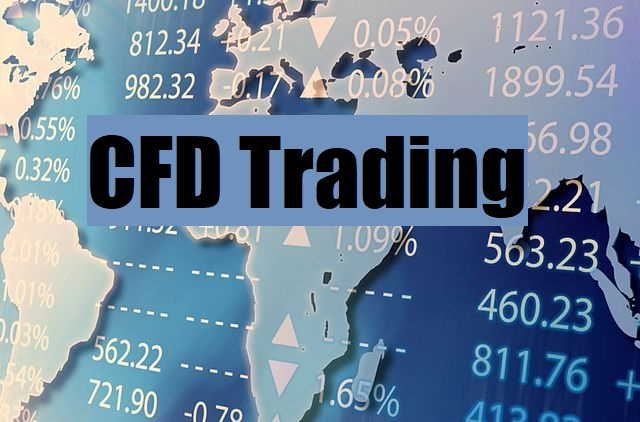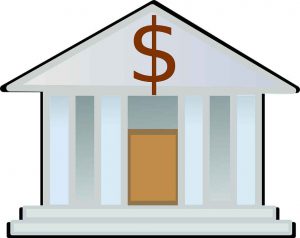CFDs have become very popular over the course of the past few years. Really many brokers, especially Forex brokers offer CFDs even instead of other investment vehicles. Obviously CFDs offer some advantages for the trader, but they do offer some shady advantages for the broker as well. In this article you will learn your advantages from CFDs and the real reasons why CFDs have become so popular among brokers.
Definition, What Is A CFD?
First off, CFD stands for ‘Contract For Difference’. This is because a CFD measures the price difference ofthe underlying asset from trade entry to exit. This price difference is your profit or loss. Let’s simplify this with a quick example: Our CFD is based on the stock ABC and ABC is trading for 100$. If you choose to buy this CFD at that point and ABC rallies up to 110$, your CFD will have generated a profit of 10$. Note that the same applies for the downside. If ABC’s price falls, the CFD will have a loss. As you can see, a CFD is a derivative meaning that it is based on an underlying asset/security (just like an option). This means that your profit and loss does depend on the underlying’s price. Even though CFDs often are traded on stocks, it does not mean that you actually buy and sell shares of the stock. CFDs have no influence on the actual underlying.
A CFD can be thought of as a bet with someone about a stock. You bet that the price will go up and your bet partner bets that it will go down. When trading CFDs, your ‘bet partner’ (counterparty) usually is your broker. The underlying asset can really be anything. This mainly depends on your broker and what they offer. Typically, brokers mainly offer CFDs for currencies/cryptocurrencies, commodities and sometimes stocks.
Advantages Of CFDs:
Let us continue with the advantages that you as a retail trader gain from CFDs:
- Leverage: The first and probably one of the biggest advantages of CFDs is the leverage gainable from them. Brokers very often offer different levels of leverage on CFDs. CFDs can often be traded with extremely high leverage (1:100, 1:200…). This would not necessarily be available for the normal underlying assets. Nevertheless, higher leverage is not always better. When having leverage available, please be careful and don’t over leverage yourself. Leverage allows you to profit more from smaller amounts, but it also allows you to lose more from otherwise small trades.
 Less capital required: Mainly due to the leverage offered, CFDs can be much cheaper and flexible than normal underlying assets. For example when trading stocks, your minimum amount often is one share of that stock. This often still can be a lot of money. CFDs allow you to invest only very little capital and allow you to select from many different position sizes.
Less capital required: Mainly due to the leverage offered, CFDs can be much cheaper and flexible than normal underlying assets. For example when trading stocks, your minimum amount often is one share of that stock. This often still can be a lot of money. CFDs allow you to invest only very little capital and allow you to select from many different position sizes.
- More selection: Nowadays CFDs are available for almost anything. This means you can trade CFDs on stocks, currencies, commodities, cryptocurrencies… This means that a broker with CFDs often has much more than one without. Additionally, CFDs allow you to trade in these asset classes much easier and all the advantages are available for all the asset classes.
- No commissions: Yes that’s correct, CFDs normally have no commissions when entering and exiting trades. Sounds amazing, right? Well actually like many Forex brokers do now, CFDs just have larger spreads instead of commissions. You can argue over what’s better, but a little more to that in the disadvantages.
- Liquidity: As your broker typically takes the other position and no counterparty has to be found, execution and execution times should theoretically be quite good. Nevertheless, this really can depend on the underlying and is not always the case.
Disadvantages Of CFDs:
This all may sound great and all may be advertised from brokers that offer CFDs, but it actually only is half of the truth. CFDs actually have a totally different side as well. Here are the disadvantages and risks of CFD trading:
- Conflict of interest: Just like I mentioned earlier, CFDs are not much else than bets with your broker. On CFD positions, your broker normally is the market maker and therefore does take the opposite position of yours. This means that your broker does lose money when you make money and vice versa. Logically, the broker wants to make money and does not want to lose money, therefore they hope that you lose money. More about the brokers role further down.
- Wider Bid/Ask spreads: One of the advantages was no entry/exit fees. Instead of that most Forex brokers offering CFDs have wider spreads. This doesn’t have to be better (or worse) than commissions, but should be noted. In the end the losses through commissions or wider spreads are probably quite similar. But don’t be amazed when you hear that a broker has no commission. They probably just have wider spreads.
- Overnight fees: There are brokers that charge overnight fees on CFDs. This is a big deal. Without this, CFDs can be a good alternative to stocks. But CFDs with overnight fees make long term trading very hard. Buy and hold is a bad strategy with CFDs that have overnight fees. This can vary from broker to broker, I am unsure if all brokers have this in place.
- Over The Counter (OTC): CFDs are Over The Counter derivatives, meaning that you make a deal with your broker. This is not really regulated. Some countries have therefore even banned CFDs.
- No influence: another small disadvantage that should be noted is that CFDs are derivatives and are linked to an underlying, but should not be confused by it. Buying and selling of CFDs has no influence on the underlying price. When trading CFDs, you are not actually buying and selling real shares of the underlying. A CFD simply is a bet with your broker.
- Counterparty risk: This risk is the risk that your counterparty may not be able to pay you. If your broker goes under, your ‘bet’ becomes worthless. This can be different with actual shares of stock. As brokers with CFDs often take the opposite position of their clients, they can rely on their clients performance. If their client’s performance is too good and the broker has poor risk management, this risk becomes higher.
- Re-quotes: To understand this, you have to know that brokers often open hedges for their opposite positions. These hedges have to be opened before your order will be filled. While they open their hedges, the price of the underlying still can change. If it changes very rapidly, your position may be opened at a different price than you ordered it at.
Broker’s Role:
Once again, a broker offering CFDs usually takes the opposite position of your trade. This is allowed because CFDs are Over The Counter (OTC) derivatives. To manage their risks they buy hedges in the markets (typically they buy and sell the underlying). But they are not required to open these hedges. Many brokers have begun track a trader’s profile and out of that they decide to open hedges or not. In other words, overall losing client’s positions often won’t get hedged. If clients (without hedges) win big, the brokers lose big and if this happens too often, payment problems may occur. An idea behind CFDs is that about 90% of traders lose their money, so they make losing trades. The broker profits from this. The high leverage makes these profits even bigger. There even have been occurrences in which brokers have purposely handicapped their winning clients, because these create losses for them. Some examples of this where that some brokers made up order problems, created delayed executions and so on. This only occurs seldomly and only occurs for very profitable traders with large volume. But don’t be too worried, not all brokers do this.
Conclusion:
Finally, let’s sum things up. First off, CFDs aren’t as bad as you may think now. But they aren’t as good as some brokers present them either. It is important to be aware of both the positives and negatives of them. In general, I still do think that CFDs can be a useful trading vehicle for some scenarios. I think they are good for day traders or in general very short term traders. In these cases they work very similar to the actual underlying, but they do carry some advantages with them. But if you want to invest with a long term approach (e.g. buy and hold), CFDs aren’t for you. The potential overnight fees and other factors make them a worse alternative to the actual underlying. Remember to not over leverage yourself even though CFDs allow you to do this. Don’t use too much leverage, keep position sizing low and don’t invest more than you can afford to lose. As the broker’s position with CFDs is questionable to some degree, it is even more important to find a good and reliable broker. Read many reviews and Inform yourself before opening and funding an account with any broker.
(Just because a broker offers CFDs does not mean that it is a bad broker!)
I also have an article with a step by step guide to choosing the best possible broker for you. Check it out HERE.
List of brokers offering CFDs:
- Plus500
- Interactive Brokers
- FXCM
- IG
- Saxo Bank
- Swissquote
- eToro
- Oanda
- Easymarkets
- And Many More…




I recently started trading with CFD and needed to learn more about them. Thank you for this as it has been very useful.
Happy to help. Good luck with your trading!
CFD’s sound interesting, but also much more risky than regular options. How much more leverage can you get with CFD’s than with options? You mentioned that CFD’s are not really regulated so is there enough leverage to be worth all of the added risk?
It sounds, to me, a lot like the old time stock market system.
CFDs work similar to stocks. The main difference is that you can get much more leverage. The amount of leverage really depends on the broker. Many legit brokers offer up to 1:200 leverage. But too high leverage is not good either. Very high leverage can lead to big losses very fast. So please be careful when trading with high leverage.
I have been trying to learn more about investment opportunities, and have been very confused by CFDs. I love your explanation of basically it’s a bet. You bet someone, a broker, that the price will go up and in turn, they are betting it will go down. That is the best explanation I have heard. That really makes sense to me. I like the no commission aspect also, but like you said, they are making money somewhere on the deal. You did a very thorough job of laying out the pros and cons of CFDs, I will definitely read more of your posts. Thanks for sharing.
Thanks so much for the comment! I am very happy that I could help you.